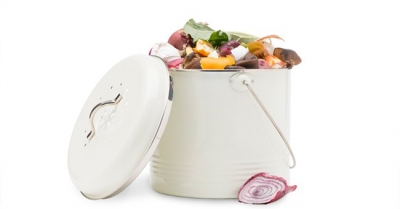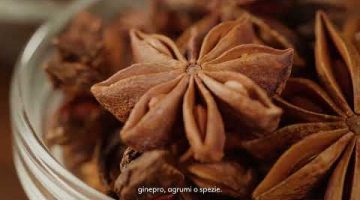There are many benefits to composting. It can save some businesses money by cutting down on the costs of paying for waste removal. Composting is also good for the environment, as it returns nutrients to the soil and it helps reduce how much waste goes to landfill. In the U.S., food waste that winds up in the landfill is a big problem, where it not only takes up space but also produces nasty methane. In fact, food waste makes up the single largest category of municipal waste according to the U.S. Department of Agriculture. But composting is a simple fix to this problem.
Below, we’ve got tips for bar owners and general managers who want to start composting.
Look for local partners
More cities and municipalities across the U.S. are including composting in their municipal waste management services. If your city doesn’t already have compost pick-up, there may be a drop-off for food scraps.
There may be other groups composting in your area, too, like community gardens, local farms and even schools. These groups might be willing to compost your scraps for you, and can also be a good resource for your compost-related questions. Or consider hiring a commercial composting service, which often will come and collect food scraps from your bar or restaurant. For example, Compost Community Shuttle offers pick-up service in the Raleigh area, Compostwheels services Atlanta homes and businesses, and Mr. Fox Composting serves Maine and New Hampshire.
Or you might want to start your own bin and benefit from the resulting fertilizer, if you have the space and time. Consider checking out this quick guide to backyard composting or pick of a copy of Rebecca Louie’s excellent book, Compost City.
Identify what’s compostable
Depending on who’s doing the composting, different things should go into your compost bucket. Vegetable trimmings, fruit peels, coffee grounds, paper napkins, and most food scraps are just about always compostable. Some composting services ask that you don’t include meat or dairy items, while others welcome them. Compostable bio-plastics (often made from corn) and wooden utensils can be another gray area, because they often can only effectively be composted in industrial-scale facilities.
Rick Dobbs, owner of The Last Word in Livermore, Calif. says that food scraps make up the bulk of what gets composted at his bar. “The stuff we have to pull out is when there’s a straw in there. If there’s a bar napkin in there, or something like that, it can go straight into that same compost can.”
Set up a bin that works with your flow
Dobbs uses two green trash cans to collect food scraps and other compostables. One is placed in the kitchen and the other is behind the bar. He says that while it does take a few moments more to separate out trash from compostables, it’s not that much harder.
If you choose to use bin liners, Dobbs recommends finding something sturdy because wet food can be heavier than regular waste. “You definitely have to make sure you have a good solid compostable bag, or if you’re reusing a plastic bag, only fill it up halfway.”
Get staff on board
Most people want to do what’s right for the environment, but figuring out what’s good and what’s garbage can be hard for anyone who didn’t grow up recycling and composting. Dobbs recommends a hands-on approach to training staff, in addition to discussing the concept of composting.
“The biggest piece was to really babysit it, for us anyway,” he said. That way, staff can learn from experience and questions can get answered right away.
thanks to:https://talesofthecocktail.com/techniques/start-composting-your-bar
















